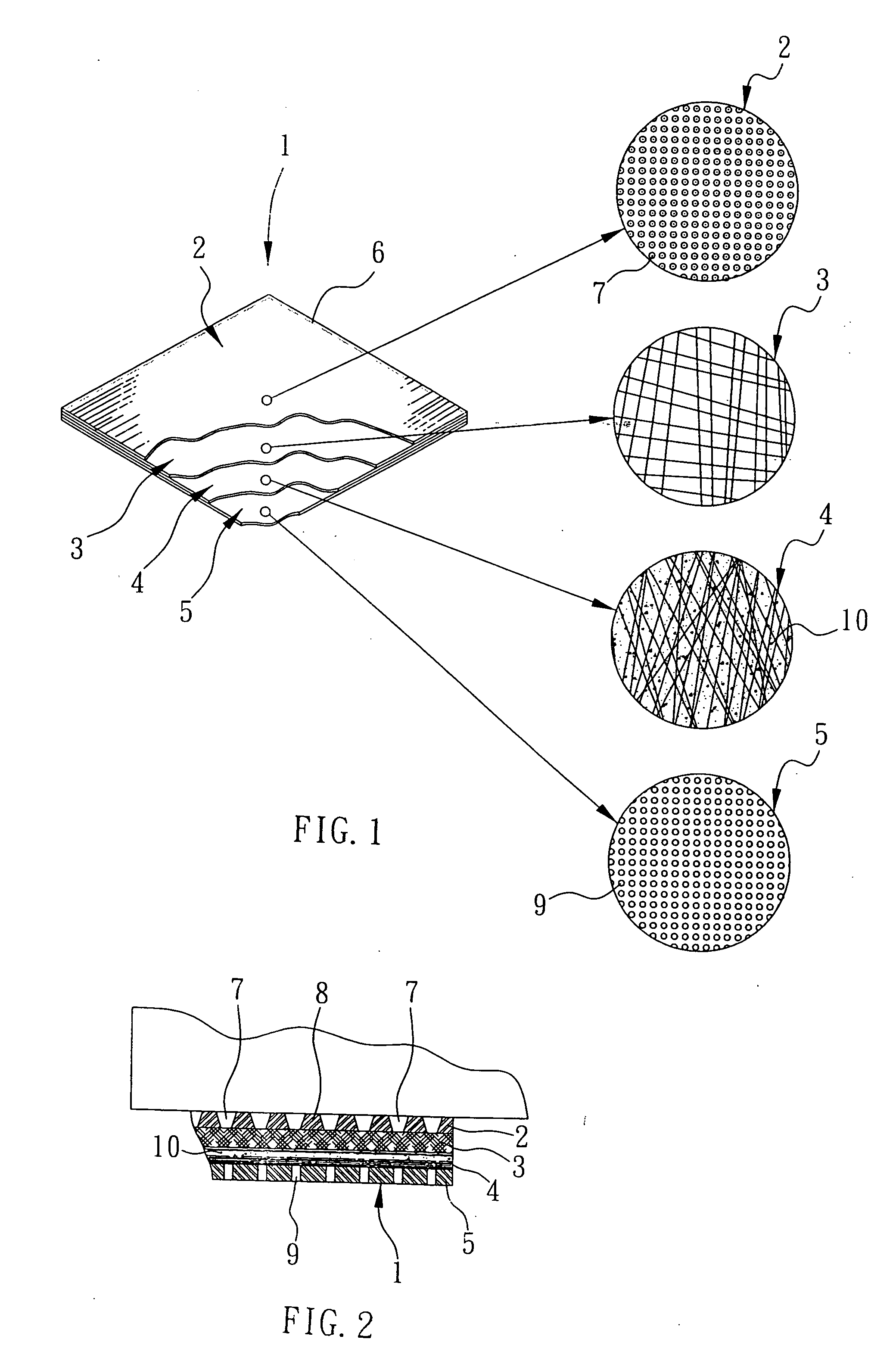Slow release agent absorbent dressing
a technology of absorbent dressing and release agent, which is applied in the direction of bandages, weaving, synthetic resin layered products, etc., can solve the problems of gauze becoming harder and hindering the healing process, and achieve the effect of promoting granulation growth
- Summary
- Abstract
- Description
- Claims
- Application Information
AI Technical Summary
Benefits of technology
Problems solved by technology
Method used
Image
Examples
Embodiment Construction
[0011] Referring to FIG. 1 and FIG. 2, the slow release agent absorbent dressing (1) of the present invention comprises a wound-contacting layer (2), a guiding layer (4), an absorbent layer (5) and an evaporating layer (6). The placement of the above layer is one on top of another in order and the peripheral edges are joined together by heat-sealing (7). The slow release agent absorbent dressing (1) has various sizes in accordance with the different size of a wound.
[0012] Wherein the wound-contacting layer (2) has a porous soft-film covered with tapered apertures (3). Said film can be a non-adherent polyethylene film or other similar materials and said tapered apertures (3) can be polygonal tapered or conical shaped apertures. The bottom surface of tapered apertures (3) with the largest caliber contacts a wound area (9) (as shown in FIG. 2) to produce a one-way valve and discharged exudate from the wound area (9) is able to penetrate through numerous tapered apertures (3). And said...
PUM
| Property | Measurement | Unit |
|---|---|---|
| concentration | aaaaa | aaaaa |
| area | aaaaa | aaaaa |
| structure | aaaaa | aaaaa |
Abstract
Description
Claims
Application Information
 Login to View More
Login to View More - R&D
- Intellectual Property
- Life Sciences
- Materials
- Tech Scout
- Unparalleled Data Quality
- Higher Quality Content
- 60% Fewer Hallucinations
Browse by: Latest US Patents, China's latest patents, Technical Efficacy Thesaurus, Application Domain, Technology Topic, Popular Technical Reports.
© 2025 PatSnap. All rights reserved.Legal|Privacy policy|Modern Slavery Act Transparency Statement|Sitemap|About US| Contact US: help@patsnap.com

